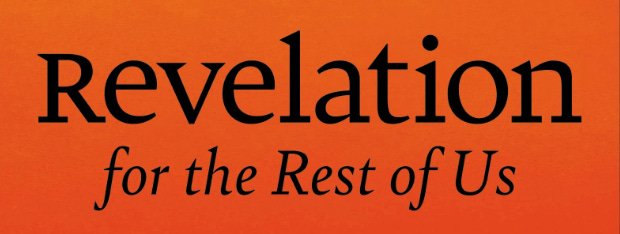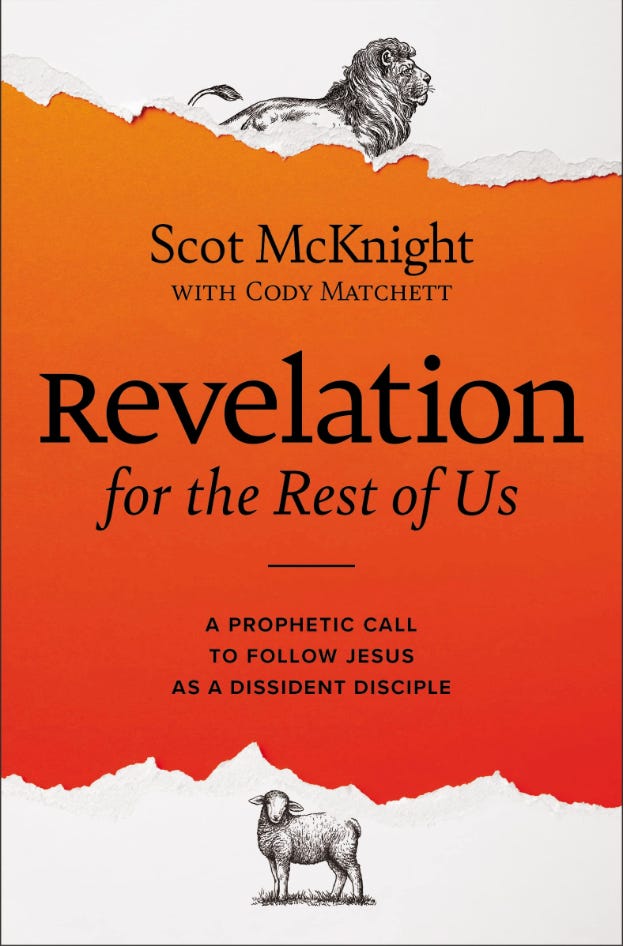Facebook knows. It knows I’m thinking these days about the Book of Revelation so it sends me video clips of preachers talking about Israel and the imminent return of Jesus; it sends me ads about conferences that will reveal to its audiences some very recent signs of the rapture.
Let’s step back to ponder how the Book of Revelation is read by so many interpreters today, and one major issue is the kind of discipleship it forms in its interpreters and churches and audiences.
Philip Gorski, in his exceptional book called American Covenant, says the speculative, dispensational approach needs criticism not only for how it reads Revelation but also for what it does to the readers. First, it reads the Bible:
(1) predictively, as an encoded message about future events that can be decoded by modern-day prophets;
(2) literally, such that the mythical creatures of the text are understood as material realities;
(3) ‘premillennially,’ with the Second Coming of Christ understood to precede the earthly ‘millennium’ of God’s thousand-year reign on earth; and
(4) vindictively, with the punishment of the godless occurring in the most gruesome and violent forms imaginable.
He presses on his readers another vital point: this is not how the church throughout its history has read the apocalyptic texts of the Bible. What was apocalyptic and metaphorical and fictional became rigidly literal for too many readers.
Gorski really helps us all when he zooms in on what these kinds of readings do to people. “First, it leads to hubris. It seduces its followers into claiming to know things that no human being can possibly know.” Such persons consider themselves elect and special and insiders, and such confidence tends toward condescension. Gorski’s second point stuns. This way of reading the Bible “leads to demonization of others. Our [the USA’s!] enemies become physical embodiments of evil. Third, it leads to fatalism, suggesting that wars and other calamities are beyond human control. Finally, and most fatefully, it suggests that the ultimate solution to all problems is a violent one involving the annihilation of one’s enemies.”
Michael Gorman, who wrote one of the most important textbooks about Revelation, concludes that the discipleship of this approach is about
believing in order to escape the Tribulation,
evangelizing to help others escape,
connecting current events to prophecies,
and being ready to die for faith in Jesus.
Christopher Rowland, another world class expert on all things Revelation, said something similar: “All that matters” for this view of Revelation “is to be found as part of the elect, who will enjoy the escape of the rapture.”
That is, the reading leads to either withdrawal from society or resignation to the evil arc of history. If you think this is exaggeration Google this stuff, find the YouTubes, go to some church where a pastor is preaching these themes, and you will find each of these points flourishing with abundance. (Most of the time.)
Here’s where we are then, and it pains me to say this, but I have students with these pains on their faces when Revelation is even mentioned. People have experienced two generations of fear-inducing messages about Revelation and now have no interest in the book. Nelson Kraybill puts it succinctly: “Many Christians in the West have shut out the book of Revelation after seeing it exploited by cult leaders, pop eschatologists, and end-time fiction writers.” A big hearty Amen! is what I hear from my students.
No matter how misguided these readings of Revelation are, the Left Behind series has what Amy Johnson Frykholm calls a “tenacious grasp on the Protestant imagination” of millions. Hidden deep in the Left Behind plot is a conservative perception of American politics in an international context.
Have you read any of the Left Behind books from a different location: like South Korea, South Africa, or South America? The language comes off as so profoundly American to them. Again, Gorski’s project reveals that this approach to Revelation partakes far too often in nothing less than American Christian nationalism! “We” (America with Israel) win and “they” (usually Russia or the European Union) lose. This kind of reading of Revelation breeds confidence in America and not dissidence about Babylon (more on this later).
From Revelation for the Rest of Us, due in about a month.






GREAT, Scott. GREAT. Hammer away at this as long as possible. I grew up on this stuff and at age 9 with no "experience" of God but lots of prayers, I was TERRIFIED. I could not sleep at night, worried that my parents would be "raptured," and I would be left behind in a godless world. That brought on physical illness that lasted five years until at age 14 I walked away from everything the church was teaching me. I know I'm not alone in this. So keep preaching the violent dangers of an interpretation, destroying that glorious book of Revelation.
I don’t have to google it... I grew up with this, my parents are fully ensconced in it still. My mother “studies” Revelation with her Bible study class about once every year or two, far more than any other book of the Bible. My one encouragement from her latest study is that she told me they recently talked about how Revelation was meant to encourage the early believers, and wasn’t meant to be something to make them afraid. So that’s a good start, maybe...